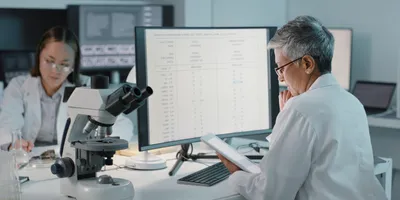Labs are valuable for producing a wide range of technical outcomes for stakeholders, ranging from complex, cutting-edge research to routine standard testing. The data, methods, and products developed in labs enable those stakeholders to take the next step forward in growing their organizations. Stakeholders rely on the integrity of the data produced by the labs to make informed decisions. The labs build trust and a positive reputation by consistently delivering high-quality results with significant data integrity.
To explain how data systems and electronic records can meet data integrity criteria, Dan Zuccarello, principal consultant at the RBF Consulting Group LLC, developed an acronym for TRUST:
Tangible
Labs need to present tangible evidence of the outcomes of the lab’s technical work. This documentation clearly demonstrates the connections between the lab’s activities, the data produced, and the results reported to the stakeholders. These documents must be reviewed and witnessed for accuracy, compliance with the required procedures, and appropriateness.
Reliable
Data integrity is based on reliability. The people, training, hardware, and software must all work in concert to perform the required activities. The people need to have sufficient training to be proficient, and the systems must be properly specified, qualified, and maintained. Building coherence into the hiring, training, and system specification processes yields a robust approach to data generation, providing stakeholders with reliability and consistency they can count on.
Unique
Data integrity relies on generating, storing, and protecting the original data accurately and securely. The lab and the stakeholders must be able to review data when new knowledge or insights become available. The digital systems must add time and date stamps when new files are created or copied. The uniqueness of data must be protected by eliminating paths to remove, alter, or delete elements of the original raw data.
Sustainable
For a digital system to ensure data integrity, the lab must demonstrate the ability to store, back up, and recover data from any location where it was originally saved. The system must also include traceability of the qualification and validation data used to bring new systems online in the lab. A fully sustainable lab protects all forms of original data. This could include paper-based systems and legacy digital systems. Creating and properly storing backups provides redundancy in the event of unexpected disruptions or disasters.
Tested
It is vital to thoroughly test systems to ensure they will perform reliably, even under stress and high usage volumes. Create test scripts that push every aspect of the electronic system to ensure that the data produced and saved adheres to high-integrity standards. For labs in GxP environments, this is part of the equipment qualification and software validation. However, a robust testing process is valuable for any lab, regardless of the quality management system, to ensure that the system will positively contribute to the trust built with stakeholders and to grow the lab’s reputation.
Digital systems are integrated into most labs today. These systems must work in concert with the rest of the data integrity process to ensure delivery of trusted data to stakeholders and to uphold the lab’s hard-won reputation. Lab managers can ensure that a robust testing process is in place to guarantee full data transparency from consistent and reliable systems, which contribute to the tangible data delivered to stakeholders.
Embark on a transformative journey in lab management with the Lab Quality Management Certificate program from Lab Manager Academy. We understand the challenges you face in driving productivity and exceeding quality goals, and we're here to support you every step of the way. Our program empowers you to overcome resistance to change, nurture a culture of quality, and drive improvement within your lab, all while fostering a culture of warmth and collaboration. Embrace generative leadership and the valuable insights of diverse voices as you guide your lab toward enduring success. Your lab's brighter future starts right here, and we're excited to be part of your journey. Discover more about the Lab Quality Management Certificate program here.
















